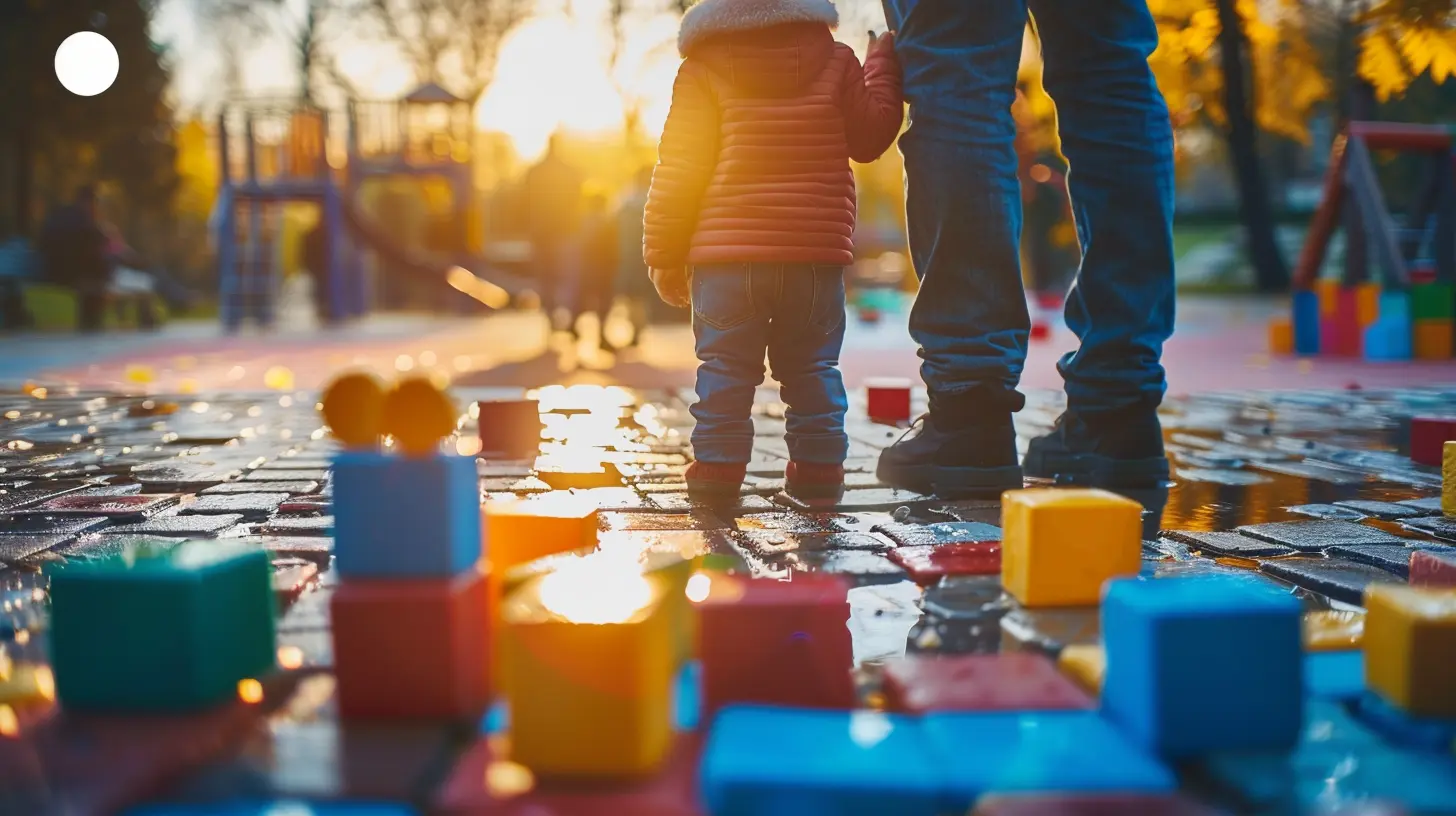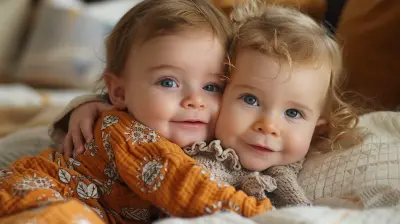Crafting a New Life: Helping Kids Adjust to Life After Divorce
5 July 2025
Divorce. The word alone carries a punch. For kids? It can feel like their world just shattered into a million tiny pieces — and they’re left to pick them up with little hands, confused hearts, and minds full of questions. But here's the deal: even though divorce throws everyone into uncharted waters, there's a way to keep your child’s emotional life afloat — even thriving.
Let’s not sugarcoat it. Divorce isn’t easy. Not for you, and definitely not for your little ones. But with intention, patience, and a whole lot of love, it is 100% possible to guide your child through the fog and into a life that’s not just “okay,” but genuinely happy.
Sound good? Let’s dive in.
The Emotional Earthquake: Understanding What Your Child Feels
Kids aren’t always great at telling us how they feel. Instead, they act it out — tantrums, silence, sudden clinginess, angry outbursts. It’s like a flashing neon sign saying, “I’m hurting, and I don’t know what to do with it!”Imagine being told the two people you love most in this world won’t be living in the same house anymore. For a child, that’s like trying to solve a jigsaw puzzle without knowing what the final picture looks like. Confusion, fear, sadness, and sometimes guilt all swirl into one messy emotional stew.
Key takeaway? Don’t ignore their behavior — listen to it. Look beyond the yelling or tears. That attitude or sudden drop in grades? It’s a red flag. Show up for them emotionally, even if they’re pushing you away.
Honesty Over Hype: Having “The Talk” Without Sugarcoating
One of the most pivotal moments post-divorce is the conversation you have with your child about what’s happening. This isn’t the time for Disney storytelling.What To Say:
- Keep it simple. Age-appropriate. Direct.- Both parents should ideally be present — united, even if only in this moment.
- Be honest: “We’re not going to be married anymore.”
- Emphasize what’s staying the same: “We both love you. That will never change.”
What NOT To Say:
- “We’re taking a break.” That’s confusing.- “It’s your mom’s fault.” That’s damaging.
- “You’ll understand when you’re older.” That’s dismissive.
Sure, they may cry. They might scream. But giving them the truth is like lighting a lantern in the dark — it helps them find their way.
Consistency is Comfort: Creating Stability in Chaos
If divorce is a tornado, routines are the emergency bunker. Kids crave structure, especially when everything else is shifting around them.Set up routines. Yes, even between two separate homes.
- Same bedtime routines in both houses.
- Clear schedules so they know who they’ll be with and when.
- Consistency in rules and discipline (as much as humanly possible).
Doing this sends a powerful, unspoken message: “We may no longer be together, but we’re still a team for YOU.”
Co-Parenting Without the Chaos: Keeping Conflict Away From the Kids
Let’s be brutally honest — co-parenting can be a minefield. Resentments. Miscommunications. Unresolved hurts. But your kids? They didn’t choose this.Rule #1: Don’t fight in front of them. Ever.
Rule #2: Don’t bad-mouth your ex. Tempting? Absolutely. Destructive? Without question.
Remember, your child is made of both of you. When you insult your ex, you’re insulting part of your child’s identity.
Let your kid be guilt-free to love both parents. Your maturity becomes their emotional safety net.
Validate, Don’t Fix: Letting Kids Feel Their Feelings
Yes, you want to make it all better. But being “Mr. or Ms. Fix-It” emotionally? That can shut kids down.Instead:
- Acknowledge their sadness: “It’s okay to feel upset.”
- Normalize their anger: “It’s totally fine to be mad about all this.”
- Let them cry without rushing to stop it.
Think of yourself as an emotional coach, not a repairman. Let them go through it — safely, and with you beside them.
New Family, New Rules: Introducing Step-Parents and New Siblings
This one’s tricky. You’ve moved on. Maybe you’ve met someone new. But for your child, this begins another emotional minefield.Don’t rush it.
- Your child needs time to adjust to the new dynamic.- Introduce new partners slowly — don’t move them in overnight.
Let your child feel what they feel.
- Jealousy? Common.- Resentment? Definitely.
- Confusion? Absolutely.
The key is not to expect instant bonding. It’s not about forcing connection — it’s about giving space for it to grow.
Create Special Traditions: Build Joy On Your Own Terms
Let’s face it — holidays, birthdays, and milestones feel weird after divorce. But that doesn’t mean they have to be awful.This is your golden opportunity to create new traditions that reflect your new life.
- Movie night every Friday with popcorn and cozy blankets.
- Pancakes for dinner every Thursday.
- A “just us” holiday ritual like decorating cookies or writing gratitude notes.
These small moments become emotional anchors. They remind your child that life still has magic — it just looks different now.
Therapy Isn’t Weak — It’s Smart
If your child is struggling to cope (and let’s face it, most do), therapy isn’t the last resort — it’s the safety net.Child therapists are like emotional translators. They help your child say the things they can’t find words for. And guess what? Therapy isn’t just for kids. You might need it, too. Healing is contagious — when you get better, your child feels it.
What NOT to Do: Divorce Damage Control
Let’s talk landmines.❌ Overcompensating with gifts:
You can’t buy their love back. Kids want presence, not presents.❌ Turning them into messengers:
Don’t make them carry messages between households like a tiny postal worker. It puts them right in the crossfire.❌ Asking them to “choose”:
Don’t ask who they want to live with. That question forces loyalty dilemmas that no child should ever face.❌ Oversharing adult problems:
Your 10-year-old doesn’t need to know who cheated on who. Let them be a kid.Teen Zone: Helping Older Kids Cope Without Shutting You Out
Teens get hit hard after divorce — harder than people think. They’ve got their own drama, hormones, identity battles, and now they’re also dealing with family changes?The result? Mood swings. Withdrawal. Maybe rebellion.
Here’s what to do:
- Don’t chase them with forced conversations.
- Be available, not pushy.
- Let them lead the dialogue — even if it’s one-word answers.
Sometimes they just need to know you’re there, quietly, patiently, consistently. That speaks louder than words.
You Deserve Grace, Too
Hey, parent — you’re human.You’re grieving, adjusting, navigating. Some days you’ll crush it. Other days, you’ll feel like a hot mess.
Guess what? That’s okay.
Your kids don’t need perfect. They need present. They need honest. They need someone who’s trying. And you? You’re doing more than you think.
So breathe. Cry if you need to. Then get up and keep going. Because this new life you’re crafting? It’s not just for your kids. It’s for you, too.
Final Thoughts: This Isn't the End, It’s A New Beginning
Divorce feels like a door slamming shut. But it also opens windows to a new kind of life — one where your child can thrive if the foundation is built on truth, love, and connection.Helping your kids adjust after divorce isn’t about pretending nothing happened. It’s about standing in the wreckage and showing them how to build something beautiful with the pieces.
So roll up your sleeves, stay grounded, and parent with heart. You’ve got this.
all images in this post were generated using AI tools
Category:
Divorce And KidsAuthor:

Tara Henson
Discussion
rate this article
1 comments
Ranger Gomez
This article offers invaluable insights for parents navigating post-divorce challenges, providing practical tips to help children adapt and thrive emotionally.
July 13, 2025 at 3:29 PM

Tara Henson
Thank you for your kind words! I'm glad you found the insights helpful for navigating this important journey.


